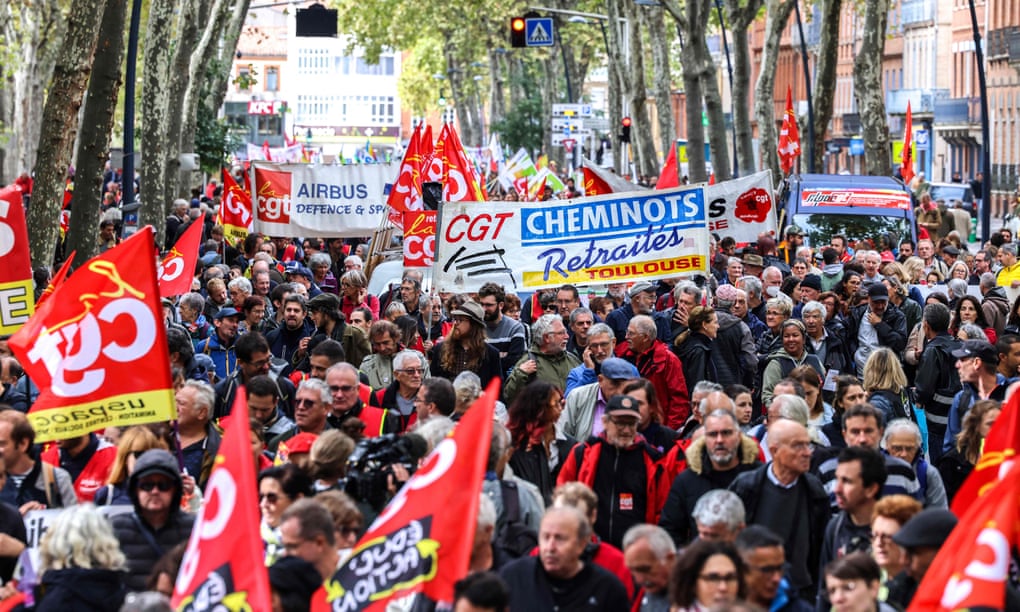Paris: France is braced for widespread chaos as unions and protesters call for a “Black Thursday” general strike this week against the government’s pension changes.
The day of action will be the first major test of the public’s resolve to force President Emmanuel Macron to back down over plans to raise the official retirement age, and his minority government’s resolve to stand up to them. Union leaders have called for a “massive mobilisation”.
Large demonstrations drawing tens of thousands are expected in Paris and other cities, where police will be out in force in case of violence from ultra-left “black bloc” infiltrators.
Under the proposals outlined earlier this month by Prime Minister Élisabeth Borne, from 2027 people will have to work 43 years to qualify for a full pension, as opposed to 42 years now.
Hailed by the government as a vital measure to safeguard France’s share-out pension system, the reform is proving deeply unpopular among the public – with 68% saying they are opposed, according to an IFOP poll this week.
All the country’s unions – including so-called “reformist” unions that the government had hoped to win to its side – have condemned the measure, as have the left-wing and far-right oppositions in the National Assembly.
“On Thursday the walls of the Élysée palace must tremble,” Communist Party leader Fabien Roussel said on Tuesday.
Because his Renaissance party does not have a majority in the Assembly, French President Emmanuel Macron will be forced to rely on support from the 60 or so MPs of the conservative Republicans party. Though in principle in favour of pension reform, even some of them have warned they could vote against.
With the parliamentary process expected to take several weeks, Mr Macron faces a rolling campaign of opposition, with further days of action likely in the days ahead. The worst outcome for the government would be rolling strikes in transport, hospitals and fuel depots – effectively bringing the country to a standstill.
Unions have described the day as a starting point, with more strikes and protests to follow.
“What nobody can know, and even the unions don’t know is whether French people are cross enough to … block the country,” said Sciences Po professor Bruno Palier.
The reform still needs to go through parliament, where Macron has lost his absolute majority but is hoping to get it adopted with the support of conservatives.


